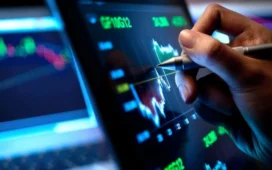Are you intrigued by the world of forex trading but need to figure out how much money you need to start? You’re not alone! The forex market is accessible to traders with varying budgets, and it’s essential to understand the factors that influence your trading capital requirements. In this guide, we will explore the key considerations and strategies for forex trading in SA with the help of a reliable forex trading platform, regardless of your starting budget.
10 Things You Should Consider Before Forex Trading in SA
- Education and Knowledge: Before starting trading, invest time learning the fundamentals of forex trading. Understand critical terms, trading strategies, and market analysis techniques. Knowledge is your best asset.
- Regulation and Licensing: Ensure that any broker you consider is regulated and licensed by South Africa’s relevant financial authorities, such as the Financial Sector Conduct Authority (FSCA). This helps protect your investments and ensures fair trading conditions.
- Broker Selection: Research and compare different forex trading platforms. Look for one with a good reputation, competitive spreads, user-friendly trading platforms, and strong customer support, like Banxso – Online Trading Brokerage Platform.
- Risk Assessment: Assess your risk tolerance carefully. Forex trading can be volatile, and it’s crucial to have a risk management plan in place to protect your capital.
- Trading Strategy: Define a clear trading strategy that aligns with your financial goals and risk tolerance. Decide whether you’ll be a day trader, swing trader, or long-term investor.
- Demo Trading: It’s important to practice using a demo trading account before investing real money. This helps you get familiar with the trading platform and test your strategies without financial risk.
- Starting Capital: Determine how much capital you’re willing to invest. Contrary to common belief, you don’t need a large sum to start trading Forex in South Africa.
- Leverage Understanding: Understand how leverage works and use it cautiously. Although leverage can increase your earnings, it can also intensify your losses.
- Psychological Preparedness: Forex trading can be emotionally challenging. Be prepared to manage stress, control your emotions, and stick to your trading plan during wins and losses.
- Continuous Learning: Forex markets are dynamic and subject to global economic and political events. Stay updated with news, market analysis, and trading trends to adapt your strategy as needed.
How to Start Forex Trading with $100?
You don’t need a substantial amount of capital to start trading Forex. Here’s a step-by-step guide on how to kickstart your Forex trading journey with just $100:
- Choose a Micro Account: Look for brokers that offer micro accounts, which allow you to trade with a smaller initial deposit.
- Risk Management: With limited capital, it’s crucial to employ strict risk management. It’s important to limit the amount of money you risk on each trade to a small percentage of your account.
- Trade Smaller Lots: Utilise micro-lots or even nano-lots to minimise risk further.
- Focus on Major Pairs: Stick to major currency pairs like EUR/USD or GBP/USD, which typically have lower spreads.
- Leverage with Caution: While leverage can amplify your gains, it can also magnify your losses. Use leverage sparingly.
- Start with a Demo Account: Practise your strategy on a demo account until you’re consistently profitable.
- Monitor and Analyse: Keep a close eye on your trades and constantly analyse your performance.
- Incremental Deposits: As you gain experience and grow your account, consider making cumulative deposits to increase your trading capital.
How to Do Online Forex Trading Risk-Free?
Is it possible to trade Forex without risking your hard-earned money? While no trading is entirely risk-free, there are ways to minimise your exposure:
- Demo Trading: Begin by practising on a demo account. This allows you to experience natural market conditions without risking your capital.
- No-Deposit Bonuses: Some brokers offer no-deposit bonuses, which provide a small amount of trading capital without requiring an initial deposit.
- Social Trading: Consider social trading platforms where you can follow and copy the trades of experienced traders. While not risk-free, it can reduce the learning curve.
- Risk-Free Trades: Certain brokers offer risk-free trades as part of their promotions. Take advantage of these offers to protect your initial investments.
- Low-Risk Strategies: Focus on low-risk trading strategies like swing trading or long-term investing, which can reduce the frequency of high-stakes trades.
- Risk Management: Implement strict risk management practices, such as setting stop-loss orders and never risking more than you can afford to lose.
In conclusion, forex trading in South Africa is an exciting opportunity, regardless of your starting capital. By understanding the factors that influence your trading budget and employing sound strategies, you can confidently embark on your Forex trading journey. Start small, practice, and continuously educate yourself to maximise your chances of success in this dynamic market.













